
Meet the Child Health Equity Center team. The center was established in 2022 by Founding Director Arvin Garg, MD, MPH. Dr. Garg has spent his career working to identify, understand, and address the root causes of poor health among children.
His vision for the center is to bring together individuals with a passion for child health equity and the drive to make positive and long-lasting changes. Inaugural faculty and staff recruits include individuals with whom Dr. Garg has had a productive working relationship for the past several years.
The Child Health Equity Center’s core team has designed a blueprint for developing family-centered interventions aimed at:
Land Acknowledgement: The Child Health Equity Center acknowledges that our physical office space is located on the unceded ancestral lands of the Nipmuc people. Many members of the Nipmuc Nation remain in Central Massachusetts and carry on their sacred mission to preserve and promote the culture, language, and values of the Nipmuc people.
Arvin Garg, MD, MPH, is a general pediatrician and clinician-scientist who studies addressing unmet social needs through family-centered healthcare system-based interventions. He is the Founding Director of the Child Health Equity Center and the Founding Program Director of the Program to Advance Training in Child Health Equity (PATH) Fellowship. He is currently a Professor of Pediatrics and Vice Chair of Health Equity at UMass Chan Medical School and UMass Memorial Children’s Medical Center. Dr. Garg is also Associate Chief Quality Officer for Health Equity for UMass Memorial Health.
Since 2009, Dr. Garg has been continuously funded by the National Institutes of Health (NIH) and has received extramural funding from private foundations. He is Principal Investigator or Co-Investigator on multiple NIH-funded awards focused on testing and/or evaluating the implementation of interventions addressing social needs. He has published over 80 peer-reviewed manuscripts and serves as Associate Editor for the Journal of Developmental & Behavioral Pediatrics. He was recently the Chair of the Health Care Delivery Committee for the Academic Pediatric Association.
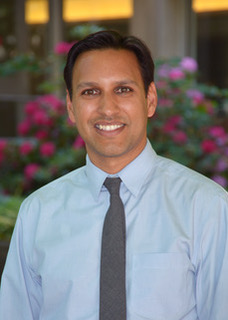
Arvin Garg, MD, MPH, is a general pediatrician and clinician-scientist who studies addressing unmet social needs through family-centered healthcare system-based interventions. He is the Founding Director of the Child Health Equity Center and the Founding Program Director of the Program to Advance Training in Child Health Equity (PATH) Fellowship. He is currently a Professor of Pediatrics and Vice Chair of Health Equity at UMass Chan Medical School and UMass Memorial Children’s Medical Center. Dr. Garg is also Associate Chief Quality Officer for Health Equity for UMass Memorial Health.
Since 2009, Dr. Garg has been continuously funded by the National Institutes of Health (NIH) and has received extramural funding from private foundations. He is Principal Investigator or Co-Investigator on multiple NIH-funded awards focused on testing and/or evaluating the implementation of interventions addressing social needs. He has published over 80 peer-reviewed manuscripts and serves as Associate Editor for the Journal of Developmental & Behavioral Pediatrics. He was recently the Chair of the Health Care Delivery Committee for the Academic Pediatric Association.
Garg A, Brochier A, Messmer E, Fiori KP. Clinical Approaches to Reducing Material Hardship Due to Poverty: Social Risks/Needs Identification and Interventions. Acad Pediatr. 2021;21(8S):S154-S160. doi:10.1016/j.acap.2021.02.007
Increased awareness of the impact adverse social determinants of health have on children and families has led to the development and implementation of a variety of new methods for identifying adverse social determinants of health in the clinical setting. As pioneers in this field, we applaud the increased interest in screening and encourage clinicians, researchers, and health system leaders to think carefully about how they implement new screening tools, engage thoughtfully with community and patient partners, and actively address any barriers to resources that may exist in their area. Screening for adverse social determinants of health is the first step of several steps needed to addressing the health-related social needs of patients.
Spencer AE, Oblath R, Sheldrick RC, Ng LC, Silverstein M, Garg A. Social Determinants of Health and ADHD Symptoms in Preschool-Age Children. J Atten Disord. 2022;26(3):447-455. doi:10.1177/1087054721996458
While Attention-Deficit/Hyperactivity Disorder (ADHD) disproportionally affects low-income children compared to their high-income peers, it is unknown what factors specifically lead to this disparity in ADHD prevalence. After investigating whether adverse social determinants of health could affect ADHD systems, it was found that several social factors (socioeconomic status, access to basic needs, and caregiver well-being) did affect ADHD symptoms. More specifically, caregiver well-being was found to deeply affect ADHD systems. As such, addressing caregiver well-being for parents of children with symptomatic ADHD may be an effective intervention strategy.
Alison LeBlanc, MS, PMP, is an experienced development strategist and child health equity advocate with over a decade of experience designing and implementing initiatives to address adverse social determinants of health. Ms. LeBlanc subscribes to the philosophy “nothing about us without us.” To this end, she has extensive experience fostering bidirectional community partnerships and coalition building. She also has a strong track record of building sustainable centers of excellence in safety-net healthcare systems.
As a disability and chronic disease self-advocate, Ms. LeBlanc has spent years redefining what it means to promote inclusivity and belonging and is dedicated to continually raising the bar for herself and her colleagues. Ms. LeBlanc completed her undergraduate degree at Wesleyan University and completed her master’s in communications at the S.I. Newhouse School of Public Communications at Syracuse University.

Alison LeBlanc, MS, PMP, is an experienced development strategist and child health equity advocate with over a decade of experience designing and implementing initiatives to address adverse social determinants of health. Ms. LeBlanc subscribes to the philosophy “nothing about us without us.” To this end, she has extensive experience fostering bidirectional community partnerships and coalition building. She also has a strong track record of building sustainable centers of excellence in safety-net healthcare systems.
As a disability and chronic disease self-advocate, Ms. LeBlanc has spent years redefining what it means to promote inclusivity and belonging and is dedicated to continually raising the bar for herself and her colleagues. Ms. LeBlanc completed her undergraduate degree at Wesleyan University and completed her master’s in communications at the S.I. Newhouse School of Public Communications at Syracuse University.
Lasser KE, Buitron de la Vega P, Ashe EM, et al. A pharmacy liaison-patient navigation intervention to reduce inpatient and emergency department utilization among primary care patients in a Medicaid accountable care organization: A pragmatic trial protocol. Contemp Clin Trials. 2020;94:106046. doi:10.1016/j.cct.2020.106046
In a value-based care (accountable care organization) model, reducing avoidable healthcare utilization is both a population health and business imperative. As adverse social determinants of health have been known to increase avoidable healthcare utilization, sustainable interventions to address patients’ adverse social determinants of health are needed. One potential strategy for identifying, addressing, and resolving patients’ adverse social determinants of health is patient navigation. As many hospitals and healthcare systems cannot afford to hire additional patient navigators, there is a need to explore whether existing staff trained in patient navigation and motivational interviewing (e.g., pharmacy liaisons) could help reduce avoidable healthcare utilization by acting as navigators and addressing patients health-related social needs.
Garg A, Wilkie T, LeBlanc A, et al. Prioritizing Child Health: Promoting Adherence to Well-Child Visits in an Urban, Safety-Net Health System During the COVID-19 Pandemic. Jt Comm J Qual Patient Saf. 2022;48(4):189-195. doi:10.1016/j.jcjq.2022.01.008
Well-childcare visits support the health and well-being of children and ensure they are meeting their developmental milestones. Unfortunately, adherence to well-child care visits is not always possible for low-income families with limited access to transportation, inflexible work schedules, and unpaid time off. At UMass Memorial Health, the largest health system in Central Massachusetts, after discovering racial and ethnic disparities in adherence to well-child care visits, a multidisciplinary team worked together to understand barriers to adherence and eliminate those barriers. Together, the team was able to promote more equitable access to well-child care visits by reducing barriers for patients and families.
Sarabeth Broder-Fingert, MD, MPH, is a pediatrician and implementation scientist who studies early diagnosis and treatment for autistic children and children with other developmental, behavioral, and/or mental health disorders. She is Vice Chair for Clinical Research in Pediatrics and Associate Director for Research at the Eunice Kennedy Shriver Center at UMass Chan Medical School. Dr. Broder-Fingert is Principal Investigator on multiple National Institutes of Health (NIH)-funded awards focused on testing and/or evaluating the implementation of autism interventions. Dr. Broder-Fingert has published more than 60 peer-reviewed manuscripts and serves as an editor for the Autism and Hospital Pediatrics journals.
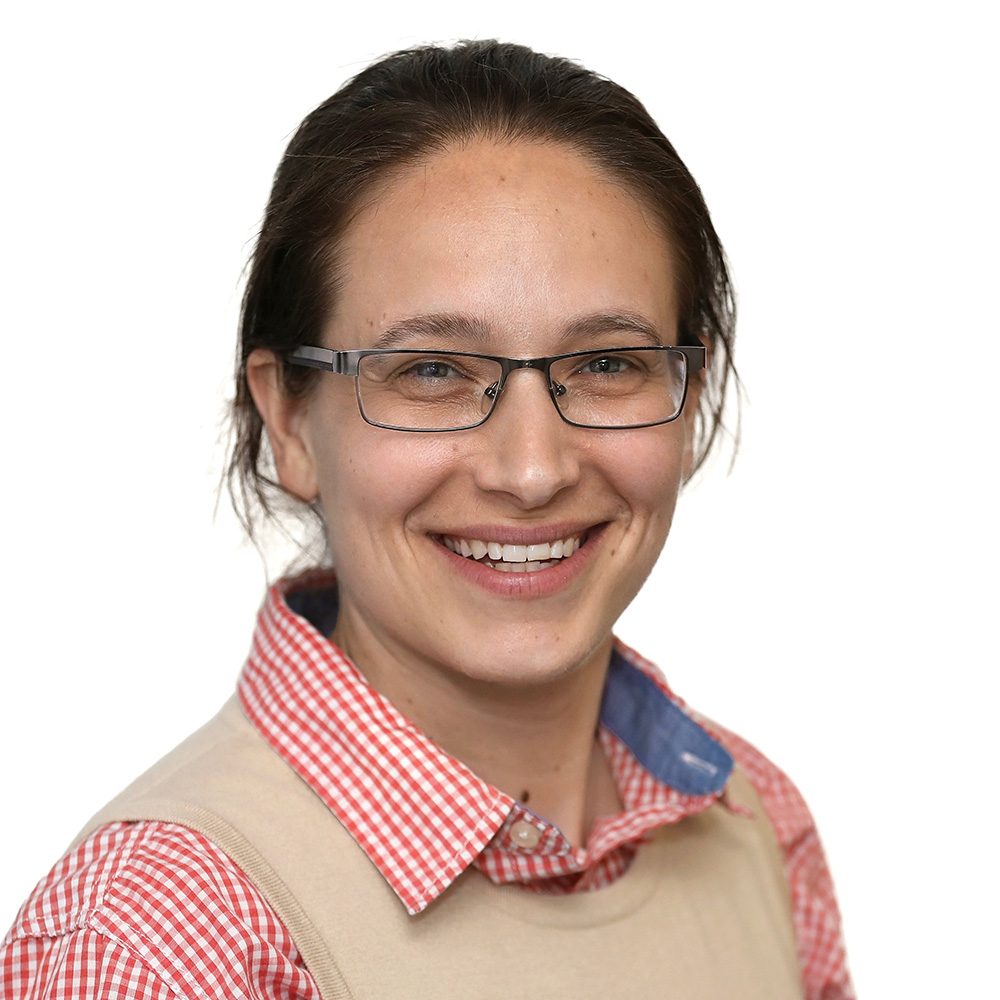
Sarabeth Broder-Fingert, MD, MPH, is a pediatrician and implementation scientist who studies early diagnosis and treatment for autistic children and children with other developmental, behavioral, and/or mental health disorders. She is Vice Chair for Clinical Research in Pediatrics and Associate Director for Research at the Eunice Kennedy Shriver Center at UMass Chan Medical School. Dr. Broder-Fingert is Principal Investigator on multiple National Institutes of Health (NIH)-funded awards focused on testing and/or evaluating the implementation of autism interventions. Dr. Broder-Fingert has published more than 60 peer-reviewed manuscripts and serves as an editor for the Autism and Hospital Pediatrics journals.
Edmunds SR, Frost KM, Sheldrick RC, et al. A method for defining the CORE of a psychosocial intervention to guide adaptation in practice: Reciprocal imitation teaching as a case example. Autism. 2022;26(3):601-614. doi:10.1177/13623613211064431
Researchers often create multi-component interventions. When these interventions prove effective, it’s not always clear if all parts of the intervention are needed for it to be effective. When translating research into practice resources are often limited and therefore it’s important to know which aspects of the intervention are needed. The CORE (COmponents & Rationales for Effectiveness) Fidelity Method helps define the key aspects of an intervention, therefore, ensuring optimal sustainability for interventions translated into real-world settings.
Barnett ML, Luis Sanchez BE, Green Rosas Y, Broder-Fingert S. Future Directions in Lay Health Worker Involvement in Children’s Mental Health Services in the U.S. J Clin Child Adolesc Psychol. 2021;50(6):966-978. doi:10.1080/15374416.2021.1969655
In the U.S. nearly half of children with mental health disorders do not receive necessary treatment. Historically marginalized groups are particularly at risk for not receiving the necessary treatment. Lay Health Workers (also known as Community Health Workers) are an important workforce that could help bridge the gap in access to child mental health services. Unfortunately, there are challenges to scaling-up interventions that involve Lay Health Workers and therefore more research is needed to better understand how this workforce can address disparities in access to child mental healthcare and also how to create a sustainable model for the deployment of Lay Health Workers in the child mental health space.
Nisha Fahey, DO, MSc, is an Assistant Professor at UMass Chan Medical School in the Division of General Pediatrics and a faculty member in the Child Health Equity Center with a focus on global health. Dr. Fahey leads an institutional collaboration with an academic tertiary care center in rural western India focused on research capacity building and community engagement to identify and address barriers to care and health inequities in rural community settings. Through this collaboration, she has led the implementation of several research projects in India; recent projects have focused on maternal-child health and social determinants of health. In addition, she is passionate about exploring how digital technologies can be used to reduce health inequities. Her current research focuses on developing ways to promote the practice of Kangaroo Mother Care among mother-neonate dyads across a variety of settings.
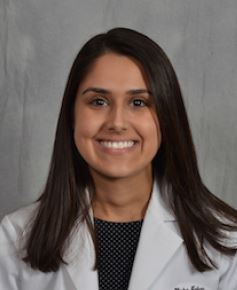
Nisha Fahey, DO, MSc, is an Assistant Professor at UMass Chan Medical School in the Division of General Pediatrics and a faculty member in the Child Health Equity Center with a focus on global health. Dr. Fahey leads an institutional collaboration with an academic tertiary care center in rural western India focused on research capacity building and community engagement to identify and address barriers to care and health inequities in rural community settings. Through this collaboration, she has led the implementation of several research projects in India; recent projects have focused on maternal-child health and social determinants of health. In addition, she is passionate about exploring how digital technologies can be used to reduce health inequities. Her current research focuses on developing ways to promote the practice of Kangaroo Mother Care among mother-neonate dyads across a variety of settings.
Fahey N, Sadhwani N, Shethwala S, Allison J, Soni A, Nimbalkar S. Knowledge of Breastfeeding and Kangaroo Mother Care Practices Among General Practitioners in Rural Western India. Food Nutr Bull. 2021;42(3):460-463. doi:10.1177/03795721211026520
Kangaroo Mother Care and breastfeeding are known to improve neonatal health and nutrition. These interventions have the potential to reduce neonatal mortality. India has one of the highest rates of neonatal mortality in the world. To understand why these rates are so high, a team of researchers investigated the knowledge of reducing neonatal mortality and undernutrition. We investigated whether allopathic and Ayurvedic, Yoga-naturopathy, Siddha, and Homeopathic (AYUSH) general practitioners in rural western India were aware of these two interventions. They found that there was a lack of knowledge of both Kangaroo Mother Care and breastfeeding among AYUSH general practitioners thus highlighting the need for additional training in and awareness of these interventions to reduce neonatal mortality in the area.
Sobelman C, Richard K, McQuilkin P, Fahey N. Adapting Helping Babies Breathe into a Virtual Curriculum: Methods, Results, and Lessons Learned. Glob Pediatr Health. 2021;8:2333794X211019698. Published 2021 May 31. doi:10.1177/2333794X211019698
Many effective interventions for reducing neonatal mortality were disrupted by COVID-19. In particular, the Helping Babies Breathe (HBB) intervention, which requires in-person training, was halted during the height of the pandemic. As HBB is an effective method for reducing neonatal mortality, a group of investigators wanted to examine whether virtual HBB training would be as effective as in-person training. They found that virtual training was as effective as in-person training. Given these findings, it may be possible to continue to offer virtual training, post-pandemic, to increase access to intervention training for individuals with limited resources.
Heather Forkey, MD, is a pediatrician and a Professor of Pediatrics at the UMass Chan Medical School. She also directs the Child Protection Program and Foster Children Evaluation Service (FaCES) of the UMass Memorial Children’s Medical Center. Dr. Forkey is particularly interested in meeting the health and developmental needs of children who have experienced trauma. In collaboration with colleagues, she has trained thousands of professionals and parents about the impacts of childhood trauma and has developed innovative resources to make that work easier. She published the first textbook on trauma-informed care for pediatrics and presents nationally and internationally on the topic. Dr. Forkey also serves in leadership roles for the National Child Traumatic Stress Network and the American Academy of Pediatrics.
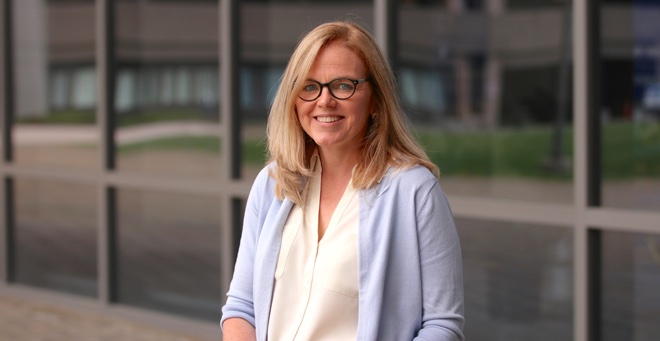
Heather Forkey, MD, is a pediatrician and a Professor of Pediatrics at the UMass Chan Medical School. She also directs the Child Protection Program and Foster Children Evaluation Service (FaCES) of the UMass Memorial Children’s Medical Center. Dr. Forkey is particularly interested in meeting the health and developmental needs of children who have experienced trauma. In collaboration with colleagues, she has trained thousands of professionals and parents about the impacts of childhood trauma and has developed innovative resources to make that work easier. She published the first textbook on trauma-informed care for pediatrics and presents nationally and internationally on the topic. Dr. Forkey also serves in leadership roles for the National Child Traumatic Stress Network and the American Academy of Pediatrics.
Forkey H, Szilagyi M, Kelly ET, Duffee J. Trauma-Informed Care. Pediatrics. 2021;148(2):e2021052580. doi:10.1542/peds.2021-052580
Most children experience some type of trauma during childhood. Trauma gets under the skin and can lead to a variety of physical and mental health issues over the life course. As such, it is important for Pediatricians to be able to identify trauma. To facilitate the adoption of trauma-informed care in various health system settings and enable Pediatricians to better serve patients who have experienced trauma, a team of trauma experts summarized available guidelines, resources, and interventions.
Forkey H, Inkelas M, Ocampo A, et al. Pediatric Approach to Trauma Treatment and Resilience-A Novel Relationship-Based Curriculum and Approach to Train Pediatric Professionals to Provide Trauma-Informed Care. Acad Pediatr. 2022;22(2):342-345. doi:10.1016/j.acap.2021.07.023
Pediatricians often see children with trauma but are not always adequately trained to respond to that trauma. As such, leaders in the field of trauma-informed mental healthcare designed and deployed easy-to-use tools for responding to trauma symptoms and promoting resilience to Pediatricians. Once implemented in General Pediatric Clinics, all providers will have the tools necessary to respond appropriately to childhood trauma.
Meg Parker, MD, MPH, is an Associate Professor of Pediatrics and Chief of the Division of Neonatology at UMass Chan Medical School and UMass Memorial Children’s Medical Center. Dr. Parker is a neonatal health services researcher and holds several federal and foundation grants in the area of social disparities in preterm birth outcomes; she has a particular interest in safe sleep and breastfeeding.
Dr. Parker is also an expert in multi-site implementation science and is the Co-Chair of the Neonatal Quality Improvement Collaborative of Massachusetts and an Improvement Advisor from the Institute of Healthcare Improvement. She has led multi-site NICU quality improvements focused on breastfeeding and family engagement. Dr. Parker applies a health equity lens to her local and multisite quality improvement projects.
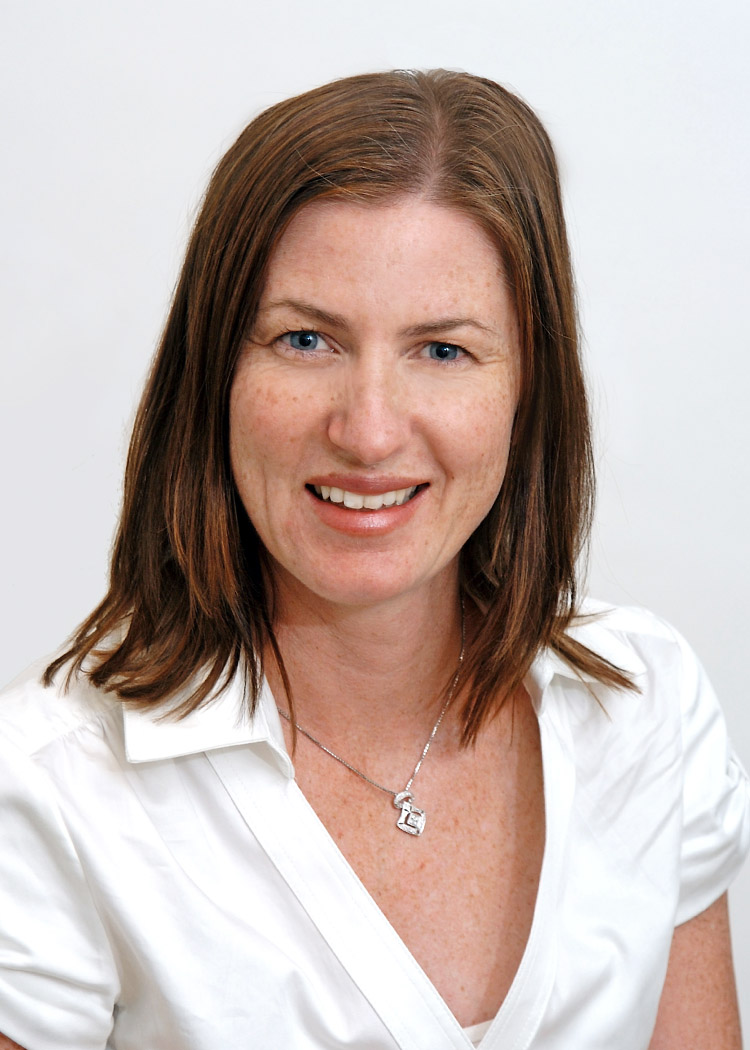
Meg Parker, MD, MPH, is an Associate Professor of Pediatrics and Chief of the Division of Neonatology at UMass Chan Medical School and UMass Memorial Children’s Medical Center. Dr. Parker is a neonatal health services researcher and holds several federal and foundation grants in the area of social disparities in preterm birth outcomes; she has a particular interest in safe sleep and breastfeeding.
Dr. Parker is also an expert in multi-site implementation science and is the Co-Chair of the Neonatal Quality Improvement Collaborative of Massachusetts and an Improvement Advisor from the Institute of Healthcare Improvement. She has led multi-site NICU quality improvements focused on breastfeeding and family engagement. Dr. Parker applies a health equity lens to her local and multisite quality improvement projects.
Parker MG, Garg A, Brochier A, et al. Approaches to addressing social determinants of health in the NICU: a mixed methods study. J Perinatol. 2021;41(8):1983-1991. doi:10.1038/s41372-020-00867-w
Having a child in the Neonatal Intensive Care Unit (NICU) is difficult for anyone. However, low-income parents with children in the NICU often face additional material hardship that make it difficult for them to visit their babies. A team of social determinants of health experts and neonatologist examined current approaches to screening for and addressing adverse social determinants of health in the NICU and found that while NICU providers understand the importance of screening for unmet social needs, screening is not currently standardized but would benefit from standardization.
Parker MG, Greenberg LT, Edwards EM, Ehret D, Belfort MB, Horbar JD. National Trends in the Provision of Human Milk at Hospital Discharge Among Very Low-Birth-Weight Infants. JAMA Pediatr. 2019;173(10):961-968. doi:10.1001/jamapediatrics.2019.2645
Very low-birth-weight infants receive health benefits from consuming human milk. While these benefits are well understood by neonatologists, the provision of human milk at hospital discharge for these infants remains is considerably variable across the U.S. and there are racial and ethnic disparities in provision. To promote health equity among these vulnerable infants, more standardization in the provision of human milk is necessary.
Michelle Trivedi, MD, MPH, is a pediatric pulmonologist and clinician-scientist who studies sustainable community-based interventions that seek to improve asthma health for children. She is an Associate Professor of Pediatrics and Population Quantitative Health Sciences at UMass Chan Medical School. Dr. Trivedi is Principal Investigator on a National Institutes of Health (NIH)-funded clinical trial of Asthma Link, a clinic-school partnership that delivers school-supervised asthma therapy to children with poorly controlled asthma in 52 schools across Massachusetts.
With a focus on sustainable, pragmatic interventions, she has developed a novel methodology for stakeholder engagement, grounded in implementation science, that elicits input from children, parents, pediatricians, community and systems-level stakeholders (payors, legislators, and public health officials) in order to adapt evidence-based interventions to real-world settings. The ultimate goal of this methodology and her work is to develop interventions that produce positive public and population health impact, particularly for historically marginalized populations.

Michelle Trivedi, MD, MPH, is a pediatric pulmonologist and clinician-scientist who studies sustainable community-based interventions that seek to improve asthma health for children. She is an Associate Professor of Pediatrics and Population Quantitative Health Sciences at UMass Chan Medical School. Dr. Trivedi is Principal Investigator on a National Institutes of Health (NIH)-funded clinical trial of Asthma Link, a clinic-school partnership that delivers school-supervised asthma therapy to children with poorly controlled asthma in 52 schools across Massachusetts.
With a focus on sustainable, pragmatic interventions, she has developed a novel methodology for stakeholder engagement, grounded in implementation science, that elicits input from children, parents, pediatricians, community and systems-level stakeholders (payors, legislators, and public health officials) in order to adapt evidence-based interventions to real-world settings. The ultimate goal of this methodology and her work is to develop interventions that produce positive public and population health impact, particularly for historically marginalized populations.
Trivedi M, Hoque S, Shillan H, et al. CENTER-IT: a novel methodology for adapting multi-level interventions using the Consolidated Framework for Implementation Research-a case example of a school-supervised asthma intervention. Implement Sci Commun. 2022;3(1):33. Published 2022 Mar 26. doi:10.1186/s43058-022-00283-5
To successfully implement and sustain evidence-based practices, investigators must thoughtfully engage patient, provider, and system-level partners and work to understand, from their unique perspectives, potential barriers to uptake. A team of researchers worked to understand potential barriers and facilitators to Asthma Link, a school-based asthma therapy intervention, from various partners’ perspectives. By interviewing partners, the team was able to not only understand challenges facing key partners but also elicit solutions directly from those partners. Employing this implementation science methodology ensures that the voices of individuals who receive and individuals who benefit from evidence-based practices will be heard.
Arenas J, Becker S, Seay H, et al. A response to COVID-19 school closures: The feasibility of a school-linked text message intervention as an adaptation to school-supervised asthma therapy. Pediatr Pulmonol. 2022;57(5):1214-1222. doi:10.1002/ppul.25851
Asthma Link, a school-supervised asthma therapy has been shown to improve asthma medication adherence and morbidity and reduce racial and ethnic disparities in asthma medication adherence. Unfortunately, COVID-19 school closure forced the suspension of the successful intervention promoting investigators to explore the use of text messages to promote medication adherence. The team found that among children previously enrolled in Asthma Link, a simple text message intervention that sent two-way, automated, daily text reminders to children’s caregivers is feasible and acceptable and represents a potential new strategy for advancing child health equity
Eric Alper, MD, is Senior Vice President and Chief Quality Officer/Chief Clinical Informatics Officer at UMass Memorial Health and Professor of Medicine at UMass Chan Medical School. In addition to his clinical work in Hospital Medicine for the past 25 years, Dr. Alper is a seasoned physician executive, having served as the primary physician champion for two large Epic electronic health record system implementations and having led many clinical/operational improvements in those hospitals. He is a strong advocate for the use of data and dashboards to facilitate quality improvement in healthcare. Dr. Alper has served as the executive sponsor for UMass Memorial’s digital health strategy and has facilitated the implementation of a number of platforms to help achieve the organization’s goals; for example, he is the executive sponsor of the UMass Memorial’s Hospital at Home program, which opened in August 2021. He also sponsored an effort to improve health equity for well-child visits, which resulted in UMass receiving the inaugural Bernard J. Tyson National Award for Excellence in Pursuit of Healthcare Equity.

Eric Alper, MD, is Senior Vice President and Chief Quality Officer/Chief Clinical Informatics Officer at UMass Memorial Health and Professor of Medicine at UMass Chan Medical School. In addition to his clinical work in Hospital Medicine for the past 25 years, Dr. Alper is a seasoned physician executive, having served as the primary physician champion for two large Epic electronic health record system implementations and having led many clinical/operational improvements in those hospitals. He is a strong advocate for the use of data and dashboards to facilitate quality improvement in healthcare. Dr. Alper has served as the executive sponsor for UMass Memorial’s digital health strategy and has facilitated the implementation of a number of platforms to help achieve the organization’s goals; for example, he is the executive sponsor of the UMass Memorial’s Hospital at Home program, which opened in August 2021. He also sponsored an effort to improve health equity for well-child visits, which resulted in UMass receiving the inaugural Bernard J. Tyson National Award for Excellence in Pursuit of Healthcare Equity.
Kathleen Driscoll, MEd, is the Senior Vice President and Chief Philanthropy Officer at UMass Memorial Health. Prior to joining UMass Memorial Health in 2020, she was the Secretary of Institutional Advancement at the Archdiocese of Boston, where she started a new shared service development model, Boston Catholic Development Services (BCDS). At the Archdiocese, she also oversaw the first capital campaign in 17 years, which raised over $175M toward a goal of $200M for several initiatives and organizations within the Archdiocese. She was a member of the Cardinal’s Cabinet and Steering Committee leading the efforts of BCDS to raise over $23M annually for several entities. Prior to joining the Archdiocese, she was President of the Campaign for Catholic Schools, where she took a leadership role in the planning and development of new Catholic urban elementary schools in the Archdiocese, including Trinity Catholic Academy in Brockton, South Boston Academy in South Boston, and Saint Pope John Paul II Catholic Academy in Dorchester. This work involved new governance structures, school leadership, academic curriculum, and renovated buildings.

Kathleen Driscoll, MEd, is the Senior Vice President and Chief Philanthropy Officer at UMass Memorial Health. Prior to joining UMass Memorial Health in 2020, she was the Secretary of Institutional Advancement at the Archdiocese of Boston, where she started a new shared service development model, Boston Catholic Development Services (BCDS). At the Archdiocese, she also oversaw the first capital campaign in 17 years, which raised over $175M toward a goal of $200M for several initiatives and organizations within the Archdiocese. She was a member of the Cardinal’s Cabinet and Steering Committee leading the efforts of BCDS to raise over $23M annually for several entities. Prior to joining the Archdiocese, she was President of the Campaign for Catholic Schools, where she took a leadership role in the planning and development of new Catholic urban elementary schools in the Archdiocese, including Trinity Catholic Academy in Brockton, South Boston Academy in South Boston, and Saint Pope John Paul II Catholic Academy in Dorchester. This work involved new governance structures, school leadership, academic curriculum, and renovated buildings.
Brian Gibbs, PhD, MPA, is the inaugural Vice President and Chief Equity, Diversity, and Inclusion Officer for UMass Memorial Health. Dr. Gibbs is responsible for establishing and enhancing institutional diversity and inclusion initiatives within the clinical mission. In collaboration with executive leadership and other system partners, Dr. Gibbs will establish educational training programs and systems for monitoring culture change leading to improved, more equitable delivery of healthcare for all patients, especially those from historically disadvantaged communities. His career spans the fields of academic medicine and health professions, which include public health and occupational therapy. Dr. Gibbs has expertise in recruitment and retention of faculty and students of color into health professions, community-based participatory research, and teaching in complex institutional settings.

Brian Gibbs, PhD, MPA, is the inaugural Vice President and Chief Equity, Diversity, and Inclusion Officer for UMass Memorial Health. Dr. Gibbs is responsible for establishing and enhancing institutional diversity and inclusion initiatives within the clinical mission. In collaboration with executive leadership and other system partners, Dr. Gibbs will establish educational training programs and systems for monitoring culture change leading to improved, more equitable delivery of healthcare for all patients, especially those from historically disadvantaged communities. His career spans the fields of academic medicine and health professions, which include public health and occupational therapy. Dr. Gibbs has expertise in recruitment and retention of faculty and students of color into health professions, community-based participatory research, and teaching in complex institutional settings.
Larry Rhein, MD, MPH, joined the faculty at UMass Chan Medical School in June 2016. He is an Associate Professor of Pediatrics and Chair of the Department of Pediatrics. Dr. Rhein is board-certified in both pediatric pulmonology and neonatology. He is a health services researcher with a focus on respiratory outcomes of neonatal lung disease and is a national expert on lung disease of prematurity. Dr. Rhein runs a research program focused on optimizing respiratory status in infants with severe lung diseases, particularly infants who are technology- or oxygen-dependent. He has pioneered several protocols for safe outpatient oxygen weaning, which allows infants to be discharged from the neonatal intensive care unit much earlier. Through clinical trials and analysis of physiological data, Dr. Rhein hopes to develop new strategies to prevent and treat neonatal and pediatric lung disease.
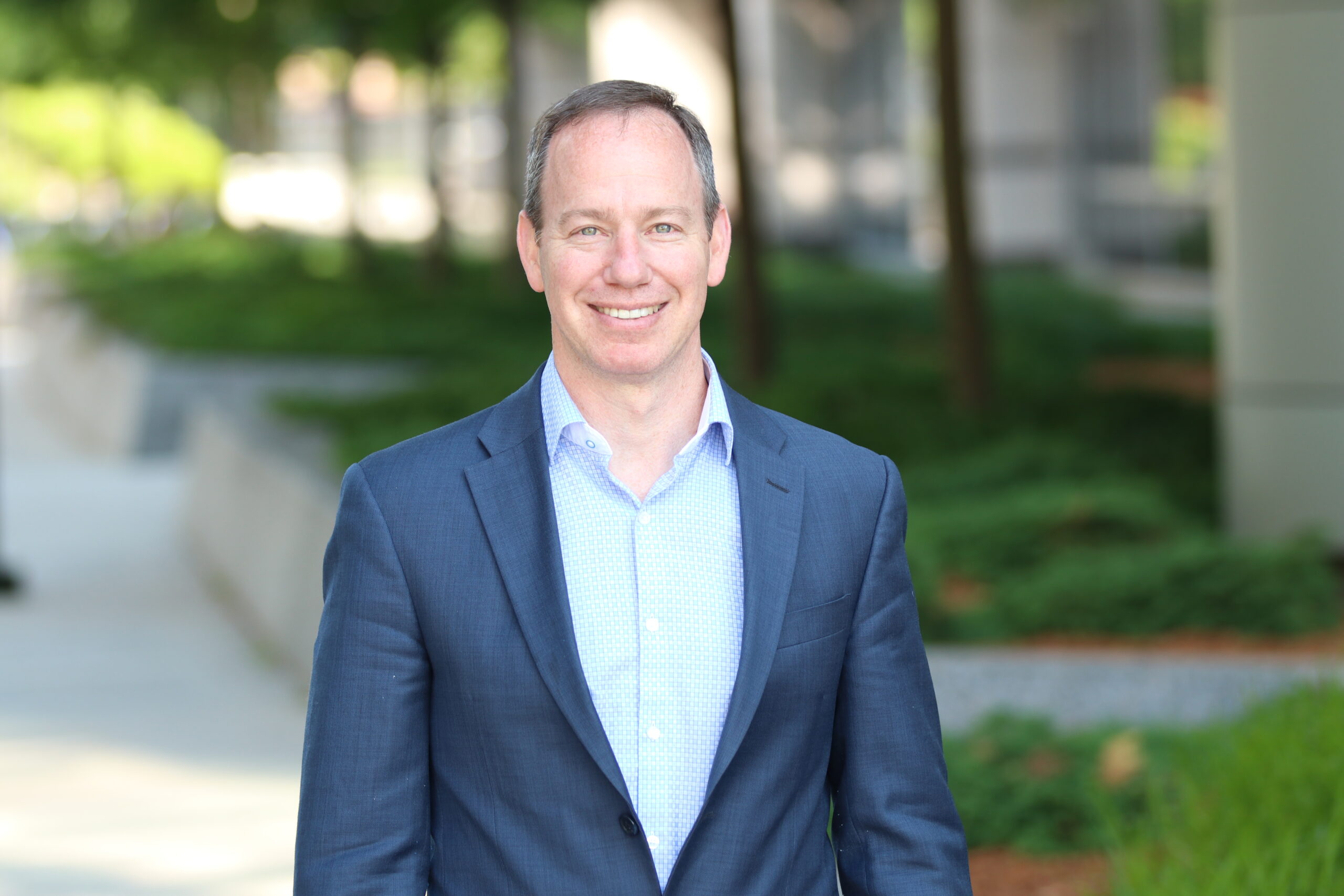
Larry Rhein, MD, MPH, joined the faculty at UMass Chan Medical School in June 2016. He is an Associate Professor of Pediatrics and Chair of the Department of Pediatrics. Dr. Rhein is board-certified in both pediatric pulmonology and neonatology. He is a health services researcher with a focus on respiratory outcomes of neonatal lung disease and is a national expert on lung disease of prematurity. Dr. Rhein runs a research program focused on optimizing respiratory status in infants with severe lung diseases, particularly infants who are technology- or oxygen-dependent. He has pioneered several protocols for safe outpatient oxygen weaning, which allows infants to be discharged from the neonatal intensive care unit much earlier. Through clinical trials and analysis of physiological data, Dr. Rhein hopes to develop new strategies to prevent and treat neonatal and pediatric lung disease.
Michael Arenson, MD, MSCR, completed his pediatric residency at the University of Washington and Seattle Children’s Hospital. He is the inaugural Fellow for the Program to Advance Training in Child Health Equity (PATH) Fellowship. Prior to residency, he attended medical school at Emory University, where he also completed a Master of Arts in Bioethics and a National Institutes of Health (NIH)-funded Master of Science in Clinical Research. His Fellowship is individually designed to help him build a career as an academic pediatrician, educator, and researcher investigating how to best screen for, treat, and prevent toxic stress and intergenerational transmission of trauma.

Michael Arenson, MD, MSCR, completed his pediatric residency at the University of Washington and Seattle Children’s Hospital. He is the inaugural Fellow for the Program to Advance Training in Child Health Equity (PATH) Fellowship. Prior to residency, he attended medical school at Emory University, where he also completed a Master of Arts in Bioethics and a National Institutes of Health (NIH)-funded Master of Science in Clinical Research. His Fellowship is individually designed to help him build a career as an academic pediatrician, educator, and researcher investigating how to best screen for, treat, and prevent toxic stress and intergenerational transmission of trauma.
Melissa is a first-generation college graduate who earned a BS in Biology from Emmanuel College, a MS in Medical Sciences from Boston University School of Medicine, and a PhD in Clinical and Population Health Research from UMass Chan Medical School. During her PhD training, Melissa’s work on pediatric blood pressure screening was supported by a National Research Service Award from the National Heart, Lung, and Blood Institute. Currently, Melissa is a post-doctoral fellow in the Prevention and Control of Cancer Training for Change in Individuals and Systems program where she is mentored by Stephenie Lemon, PhD, as well as in the Program to Advance Training in Child Health Equity where she is Mentored by Arvin Garg, MD, MPH. Through these fellowships Melissa will build an academic research program that focuses on chronic disease prevention and health equity in children through implementation of evidence-based programs and community-clinical linkages.

Melissa is a first-generation college graduate who earned a BS in Biology from Emmanuel College, a MS in Medical Sciences from Boston University School of Medicine, and a PhD in Clinical and Population Health Research from UMass Chan Medical School. During her PhD training, Melissa’s work on pediatric blood pressure screening was supported by a National Research Service Award from the National Heart, Lung, and Blood Institute. Currently, Melissa is a post-doctoral fellow in the Prevention and Control of Cancer Training for Change in Individuals and Systems program where she is mentored by Stephenie Lemon, PhD, as well as in the Program to Advance Training in Child Health Equity where she is Mentored by Arvin Garg, MD, MPH. Through these fellowships Melissa will build an academic research program that focuses on chronic disease prevention and health equity in children through implementation of evidence-based programs and community-clinical linkages.
Monick Powell, C-TAGME, is the Pediatric Training Program Coordinator at UMass Chan Medical School and UMass Memorial Children’s Medical Center. She acts as Coordinator for the Program to Advance Training in Child Health Equity (PATH) Fellowship. She was born in Puerto Rico, grew up in New York, and has been working at UMass since 2004 in various positions in Pediatrics. Ms. Powell established and leads the institutional Training Programs Coordinator Advisory Committee.
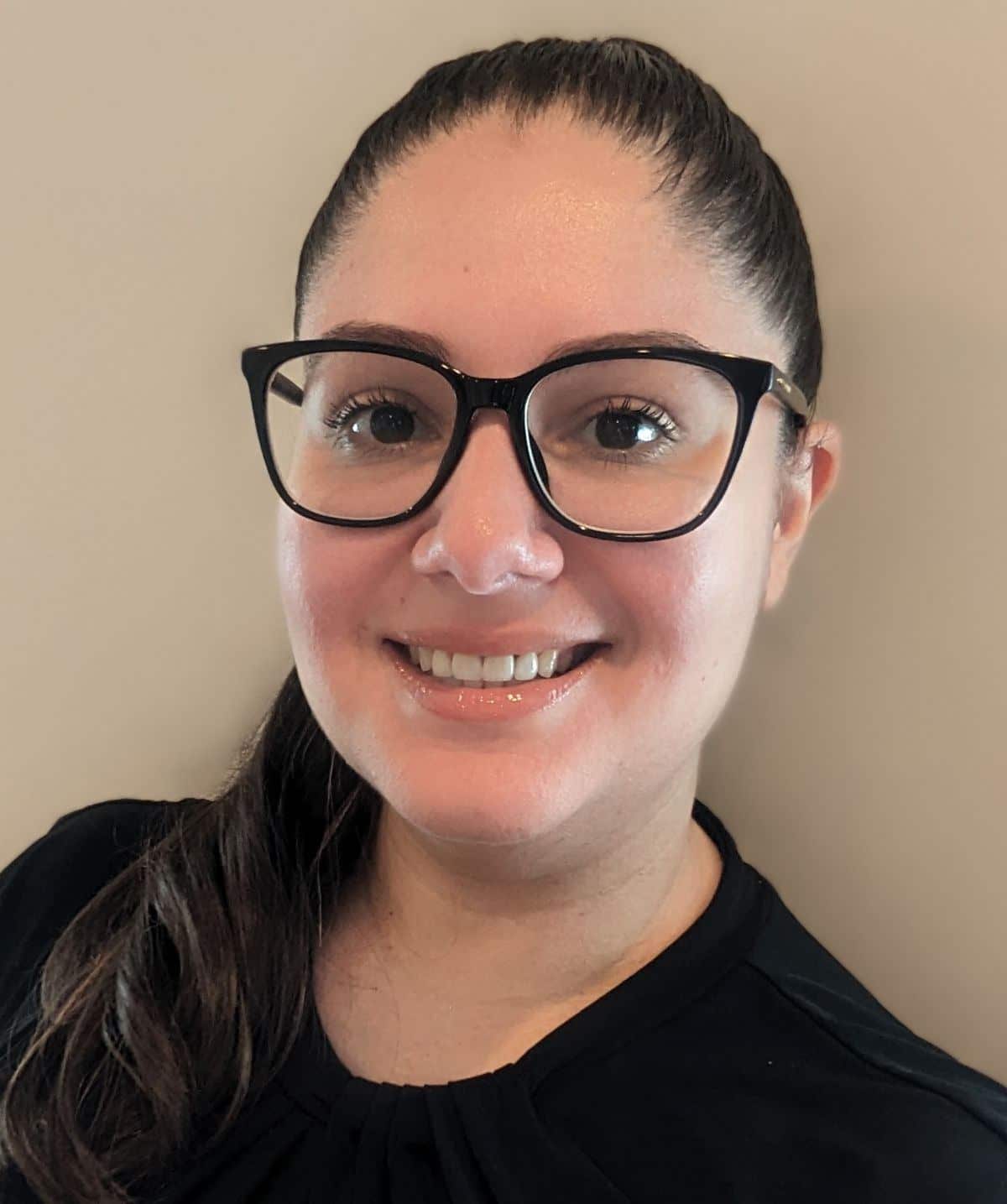
Monick Powell, C-TAGME, is the Pediatric Training Program Coordinator at UMass Chan Medical School and UMass Memorial Children’s Medical Center. She acts as Coordinator for the Program to Advance Training in Child Health Equity (PATH) Fellowship. She was born in Puerto Rico, grew up in New York, and has been working at UMass since 2004 in various positions in Pediatrics. Ms. Powell established and leads the institutional Training Programs Coordinator Advisory Committee.
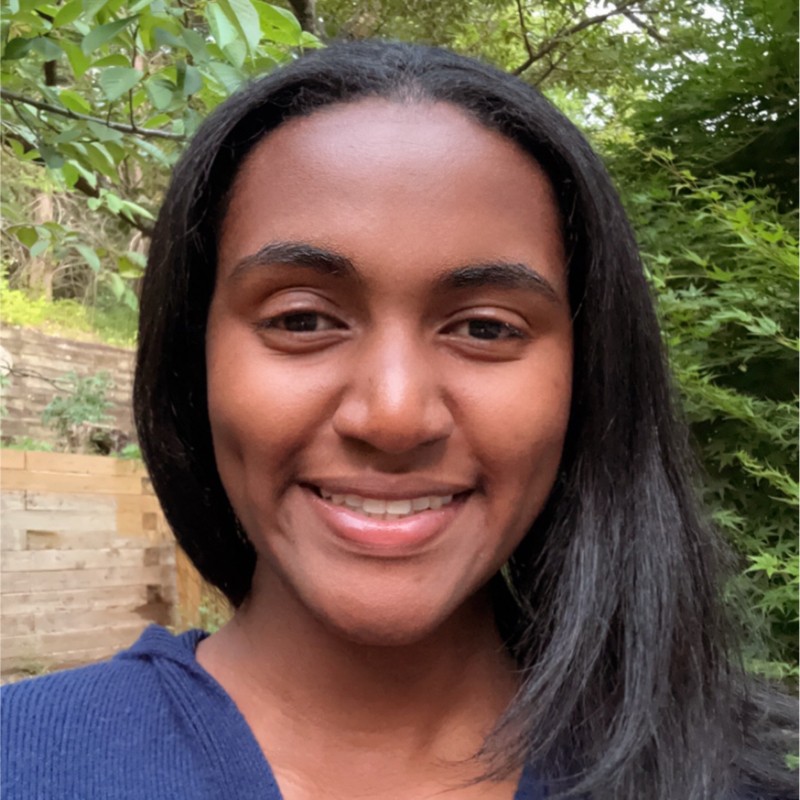
Maia Archer graduated from Boston University with her B.A. in Biology, double minoring in French and Public Health. She is an intern for the Child Health Equity Center primarily assisting with the Pilot Lyft Transportation Program and Food is Medicine Program. Maia will be continuing her academic journey at George Washington University to receive her Masters in Public Health with a concentration in Health Promotion.

Maia Archer graduated from Boston University with her B.A. in Biology, double minoring in French and Public Health. She is an intern for the Child Health Equity Center primarily assisting with the Pilot Lyft Transportation Program and Food is Medicine Program. Maia will be continuing her academic journey at George Washington University to receive her Masters in Public Health with a concentration in Health Promotion.